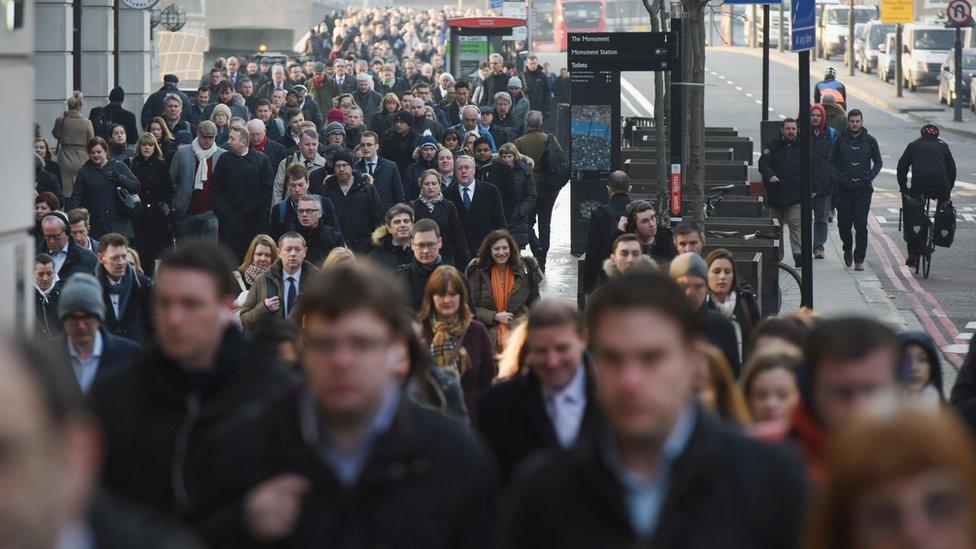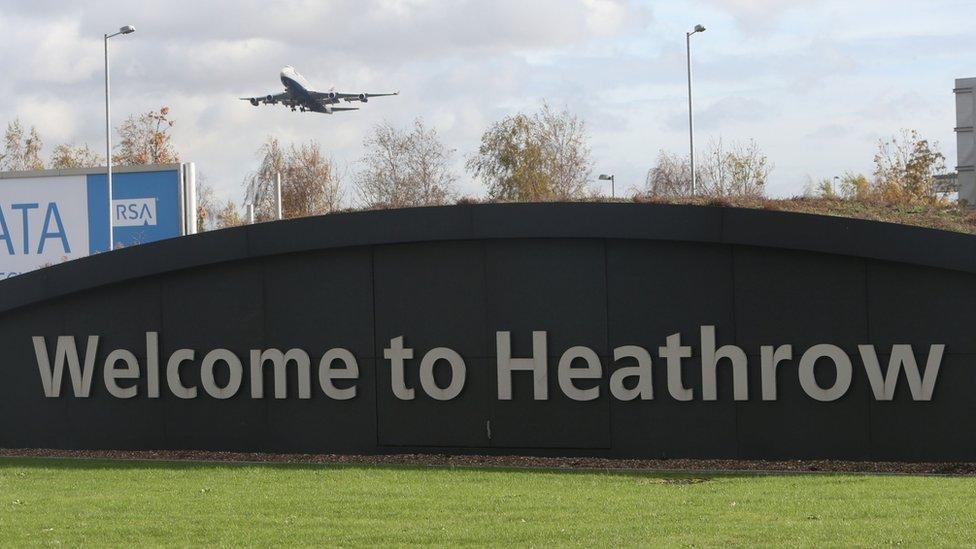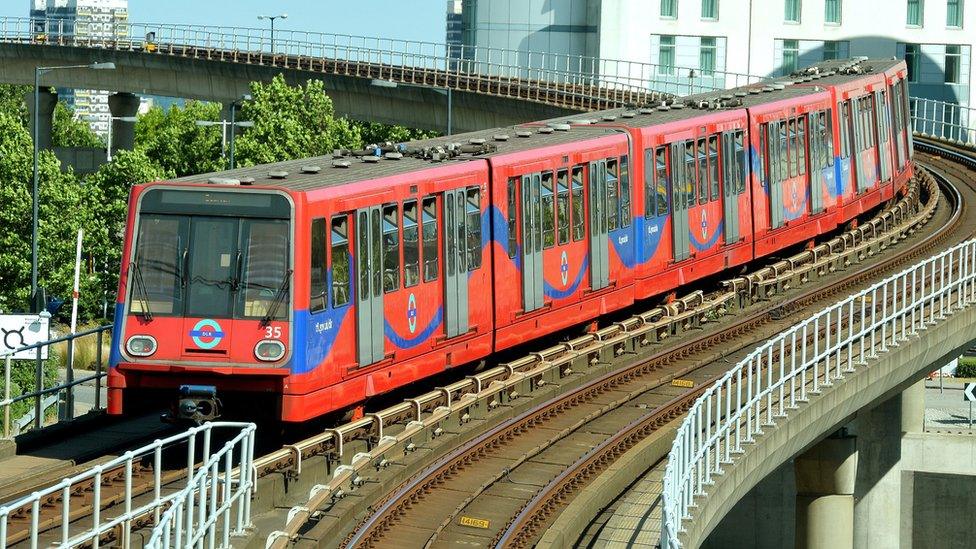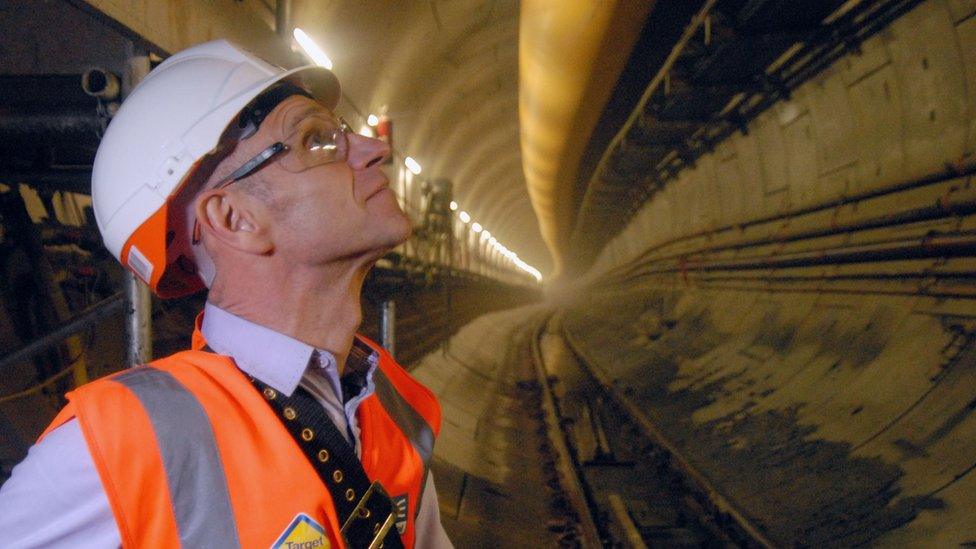General Election 2017: Parties differ over London transport
- Published

Ensuring millions of people get to work in London is tough to manage
Lurking under the shadow of Brexit and not getting much in the way of attention, are the main parties transport policies.
Experts and campaigners despair that transport doesn't get the prominence during elections they think it deserves considering it affects everyone.
Remember that much of transport policy in London is devolved to the mayor, however there are some differences in how the main parties are approaching it.
While there is not a huge amount of detail - for example none of the parties outline what they will do with rail fare increases - here are some highlights:

Despite agreeing over the third runway, there are still many points the parties disagree over
Heathrow
We have come full circle with the Tories and Labour on this issue.
Both have supported and opposed the enlargement of Heathrow at different times but now both support expansion. This is despite high profile members in both parties, like Boris Johnson and John McDonnell, opposing it.
The parties now agree a third runway is needed for the economy and UK PLC.
But it's not the end of the debate for this most contentious of issues. The Conservatives have said it before, and it is in the Labour manifesto, that they will only allow expansion if strict limits on night flights, pollution and noise are abided by.
Campaigners have also moved in that direction and also want strong, legally binding limits on a third runway that could even stop it being built.
The Liberal Democrats and the Greens oppose expansion so there are plenty of political battles ahead.

The running of Docklands Light Railway has been devolved to London mayor
Rail devolution
This is where there are big differences between the two main parties. The Conservatives want to continue with its franchise system, with different rail companies bidding to run services.
But Labour wants to renationalise the rail industry, so when franchises come up for renewal they will be put "back into public ownership". But it doesn't seem to be a move back to British Rail, the nationalised rail service which ended in 1997.
As quoted in the Evening Standard, external, Labour would hand control of the capital's key commuter routes to Transport for London.
The transport authority already runs a model where it pays a private operator to run a service on its behalf, for example the DLR and the London Overground. This means TfL sets the prices and keeps the farebox but also shoulders the revenue risk.
Labour also seem to be saying private operators will still be involved in London's commuter routes although there is some debate over whether this is actually renationalisation.
The Liberal Democrats say: "We will allow public sector bodies and mutual groups involving staff and passengers to bid for franchises."

It is not known if Crossrail 2 will be built
Infrastructure
All the main parties now support HS2 but the Greens do still oppose it.
And while the Liberal Democrats and Labour emphasise the need for Crossrail 2 - a rail line to link Hertfordshire to Surrey through central London - the Tories do not mention it in their manifesto.
Many experts believe Crossrail 2, external is crucial to London to relieve congestion as the city continues to grow.
So is it dead?
Well there is a school of thought that thinks it is still very possible and its omission from the Tory manifesto is more to do with political positioning than infrastructure investment, i.e. it could still go ahead with the right funding.
- Published15 May 2017
- Published28 May 2017
